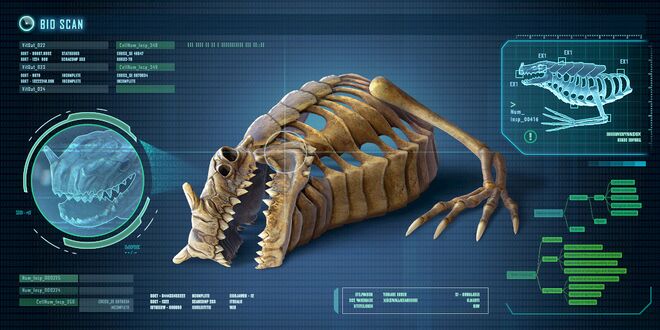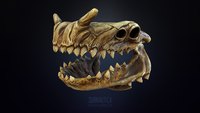Sea Dragon Leviathan Skeleton: Difference between revisions
No edit summary |
(Adding categories) |
||
| Line 31: | Line 31: | ||
[[Category:Lost River]] |
[[Category:Lost River]] |
||
[[Category:Skeletal Remains]] |
[[Category:Skeletal Remains]] |
||
[[Category:Leviathan Class]] |
|||
Revision as of 23:06, 14 July 2018

|
Read at own risk This article contains unmarked spoilers. Players new to the game would want to avoid or be cautious toward this article. |
<infobox layout="stacked">
<title source="title" style="font-weight:bold; text-align:center;"> <default>Sea Dragon Leviathan Skeleton</default> </title> <image source="image">
</image>
<label>Age</label>
<label>Status</label>
<label>Biome</label>
<label>Length</label>
<label>Coordinates</label>
<label>GoTo</label>
<label>Debug Spawn</label>
</infobox>
This skeleton is found in the Lost River Junction. It belonged to a Sea Dragon Leviathan that attacked the Disease Research Facility in an attempt to retrieve an egg belonging to it, that the Precursors had taken in the hope that it would it would reveal the hatching mechanisms of Sea Emperor Leviathan Eggs, likely due to the similar physical appearances of these two species, suggesting they share a common ancestor. The Sea Dragon's attack on the facility destroyed it, but also caused fatal head trauma to the Sea Dragon; it died not long after the attack. The remains are approximately one thousand years old.
Data Bank Entry
|
The semi-intact skeletal structure of a leviathan class predator.
|




